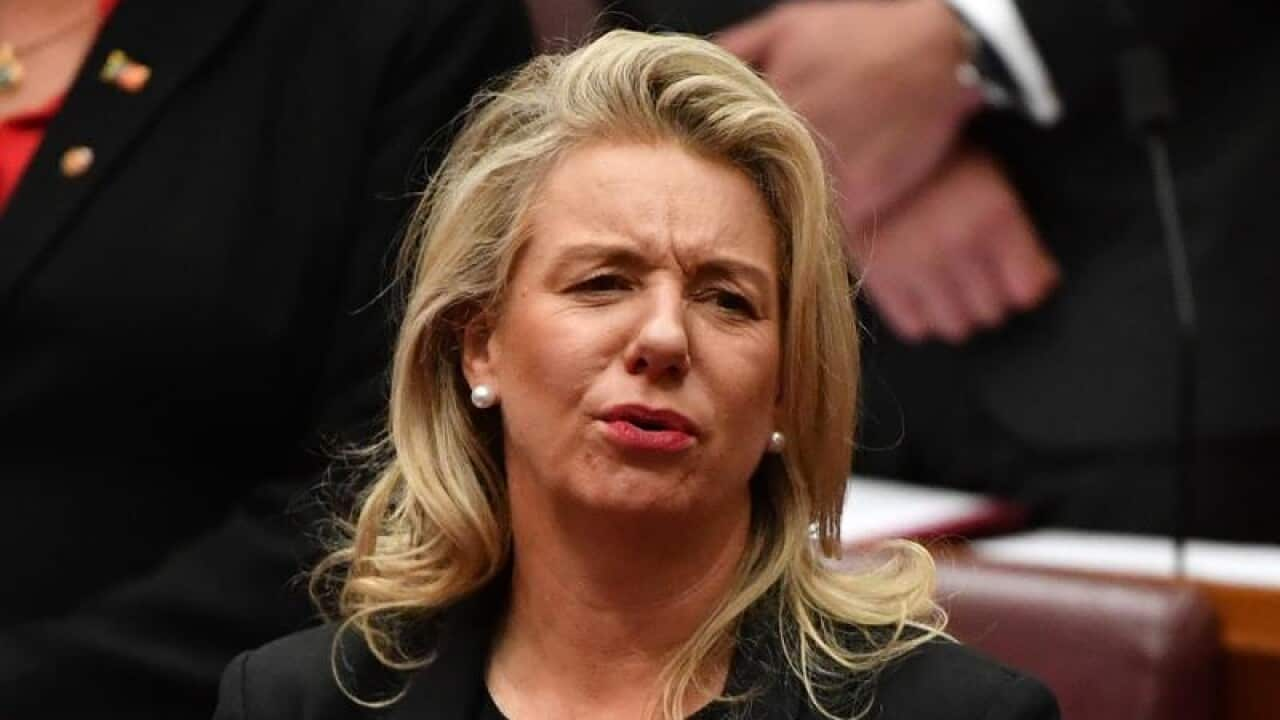Legal experts have questioned the legality of the federal government's handling of $100 million in community sports grants, with one warning the scheme may be unconstitutional.
A report by the auditor-general found former sports minister Bridget McKenzie's office ran a “parallel assessment process” on funding decisions, favouring marginal seats being "targeted" by the Coalition.
Auditor-general Grant Hehir determined the scheme showed a “distribution bias”, ignoring merit-based recommendations made by government agency Sport Australia. Senior Lecturer at Monash University Maria O’Sullivan, who specialises in administrative law, told SBS News the investigator’s findings raised concerns over the minister’s legal authority to make final decisions.
Senior Lecturer at Monash University Maria O’Sullivan, who specialises in administrative law, told SBS News the investigator’s findings raised concerns over the minister’s legal authority to make final decisions.

Prime Minister Scott Morrison and cabinet minister Bridget McKenzie at Penrith Valley Regional Sports Centre in Sydney. Source: AAP
“She didn’t have legal authority... there is nothing in the act to say the minister can make the decision ... so all of those decisions were theoretically unlawful."
“The problem is the remedy, what do you then do to remedy that legal error, when money has already been expended,” Ms O'Sullivan said.
Prime Minister Scott Morrison has conceded there were “legal issues” raised by the auditor-general, which he has now tasked Attorney-General Christian Porter with clarifying as soon as possible.
Mr Porter says he is “attending to” questions over the legal basis for ministerial involvement in the relevant process on the prime minister’s request. University of Sydney Constitutional law expert, Professor Anne Twomey, has even questioned whether the deputy Nationals leader breached the constitution through the scheme.
University of Sydney Constitutional law expert, Professor Anne Twomey, has even questioned whether the deputy Nationals leader breached the constitution through the scheme.

Senator Bridget McKenzie plays a game of Wheelchair Rugby with Paralympic athletes. Source: AAP
"What is astonishing about the latest sports-rorts affair is its brazenness, culminating in the assertion that 'no rules were broken'," Ms Twomey wrote in the Australian Financial Review.
Senator McKenzie has refused to apologise for her handling of the program insisting it was "highly successful".
The Morrison government says each of the 684 projects that received funding was eligible under the program’s guidelines. Nearly 1,400 projects missed out under the controversial $100 million scheme.
But Ms Twomey said from a legal perspective there could be "at least three areas" in which rules were broken.
She outlined the legal obligation on ministers to behave in a procedurally fair manner, questions over the minister’s legal authority, and whether or not she broke the constitution.
“Commonwealth Parliament may legislate only with respect to subjects listed in the constitution (known as “heads of power”),” she wrote.
“There is no head of power with respect to 'sport'.”
Ms O’Sullivan agreed these legal concerns still needed to be answered but is uncertain about how they could be remedied.
“The guidelines were about a merit-based process and there was nothing about certain electorates being able to be targeted for political reasons,” she said.
“The problem is if we have to remake this whole process, we are talking about hundreds of applications... it might be quite messy.”
Law firm Slater and Gordon is investigating a class action on behalf of sporting clubs that did not receive funding.
Ms O’Sullivan said any potential legal action could be difficult to compensate.
“When you have got competitive grants and a huge number of applicants that can be quite difficult to do,” she said.
“When you have got a large number of applicants the court is sometimes a little bit reluctant to intervene.”
Prime Minister Scott Morrison is standing by his now agriculture minister despite calls from Labor for Senator McKenzie to resign.
Former NSW auditor-general Tony Harris says if the program had come across his desk he would have referred it to the state's anti-corruption commission.
"I would be obliged to advise the Independent Commission Against Corruption about the matter," Mr Harris told the ABC.
"I would expect them to have an inquiry into the matter."
Currently, there is not a federal equivalent of ICAC.
Labor's former sports minister Ros Kelly stepped down from the ministry and then parliament in 1995 following a similar scandal.
With additional reporting from AAP













